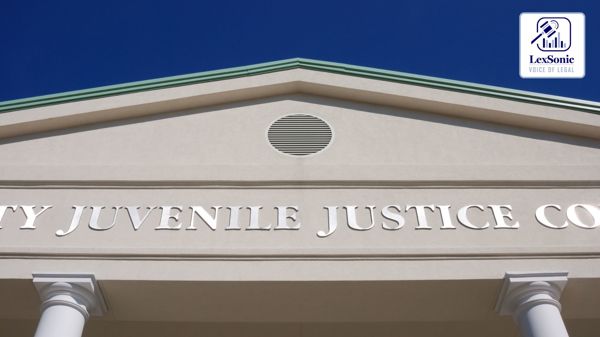Bombay High Court Dismisses Plea for Inter-Country Relative Adoption of US Citizen Child.
16 July 2025
Civil Writ Petition >> Civil & Consumer Law
In a recent judgment of Abdulkadir Lokhandwala & Another v/s The Central Adoption Resource Agency, New Delhi & Others, the High Court of Judicature at Bombay dismissed a petition seeking a directive to the Central Adoption Resource Authority (CARA) to facilitate the adoption of a US citizen child by his Indian relatives residing in India. The case highlights the complex interplay of international and domestic adoption laws, particularly when the child's citizenship differs from that of the prospective adoptive parents and their country of residence.
The Petitioners, an Indian couple residing in India and relatives of the child's biological parents, sought to adopt Mohammed Moiz, a male minor born in the USA and holding US citizenship. Baby Moiz was brought to India by the Petitioners in October 2019. Their efforts to register as prospective adoptive parents on CARA’s "CARINGS" web portal were refused, on the grounds that the Adoption Regulations (AR) do not contemplate facilitating the adoption of an American citizen. This refusal prompted the Petitioners to approach the High Court.

Arguments Presented Before the Court
Petitioners' Stance: Represented by Ms. Shirin Merchant, the Petitioners argued that the adoption should be treated as an "in-country adoption" under the relevant Adoption Regulations. They asserted that the Juvenile Justice (Care and Protection of Children) Act, 2015 (JJ Act), is "parent-centric," meaning the procedure should be based on the country of residence of the parents (India) rather than the child's citizenship. They also contended that the International Hague Convention on Adoption of Children, to which India is a signatory, does not apply to private adoptions. Furthermore, they urged CARA to exercise its power to relax guidelines under AR 63, emphasizing the child's best interests, as he is now six years old, attending school in India, and faces issues with passport renewal.
CARA's Defense: Mr. Y. S. Bhate, representing CARA, maintained that neither the JJ Act nor the Adoption Regulations apply to the adoption of a child who is an American citizen and does not fall under the categories of a 'child in need of care and protection' or a 'child in conflict with law'. CARA argued that the applicable Regulation 23 mandates the completion of adoption formalities in the foreign country (USA) as per their laws before an Indian mission can issue an entry visa. CARA also cited the Hague Convention, stating that the receiving state (India) must guarantee the child's permanent residency, which is not possible for a US citizen under current Indian laws. CARA suggested alternatives: either the Petitioners adopt the child in the US according to American laws, or Baby Moiz applies for Indian citizenship, after which his adoption could be facilitated in India.
Biological Parents' Support: Ms. Yugandhara Khanwilkar, representing the biological parents (Indian citizens residing in California, USA), supported the Petitioners. She argued that since all parties involved, except the child, are Indian citizens, the adoption should be considered an in-country adoption governed by AR 54. She also pleaded for CARA to invoke its discretionary powers under AR 63, citing previous instances where exceptions were made in the best interests of a child.
Court's Ruling and Rationale
After hearing all parties and reviewing the relevant legal provisions, the High Court dismissed the petition, providing a detailed rationale:
- Applicability of JJ Act: The Court clarified that the JJ Act primarily applies to 'children in need of care and protection' and 'children in conflict with law'. Since Baby Moiz falls into neither category, the provisions of the JJ Act concerning his adoption do not apply. Section 56(2), which deals with relative adoption, cannot be invoked independently without the child first being relinquished to qualify as a 'child in need of care and protection'.
- Interpretation of Adoption Regulations: The Court affirmed that Regulation 23 is applicable, necessitating the completion of adoption formalities in the USA as per American laws. It also emphasized that the definition of "in-country adoption" in the Regulations, being a delegated legislation, cannot supersede the parent JJ Act; thus, an "in-country adoption" must also pertain to a child covered by the JJ Act.
- Hague Convention: The Court rejected the Petitioners' interpretation that the Hague Convention does not apply to private adoptions. Instead, it highlighted that Articles 22 and 23 of the Special Commission on the practical operation of the Hague Convention explicitly state that private and independent inter-country adoptions are incompatible with the Convention's objectives of preventing illicit child trafficking. Furthermore, Articles 5 and 17 of the Convention require the receiving state to ensure permanent residency, which Indian authorities cannot guarantee for a US citizen.
- CARA's Discretion: The Court found no fault with CARA’s refusal to exercise its relaxation powers under AR 63, noting that previous relaxations were made in cases where the child was already covered by the JJ Act.
- No Fundamental Right: The Court concluded that there is no fundamental right for the petitioners to adopt an American child who does not fall under the applicability of the JJ Act.
The High Court affirmed that the Petitioners' predicament could be resolved by either processing the adoption in the USA under applicable American laws or by Baby Moiz applying for Indian citizenship, followed by adoption under the JJ Act. However, the Petitioners were not inclined to accept these suggestions.
This judgment reinforces the principle that specific legal frameworks govern adoptions, especially in inter-country scenarios, and adherence to these procedures is paramount, regardless of familial relationships or good intentions.
